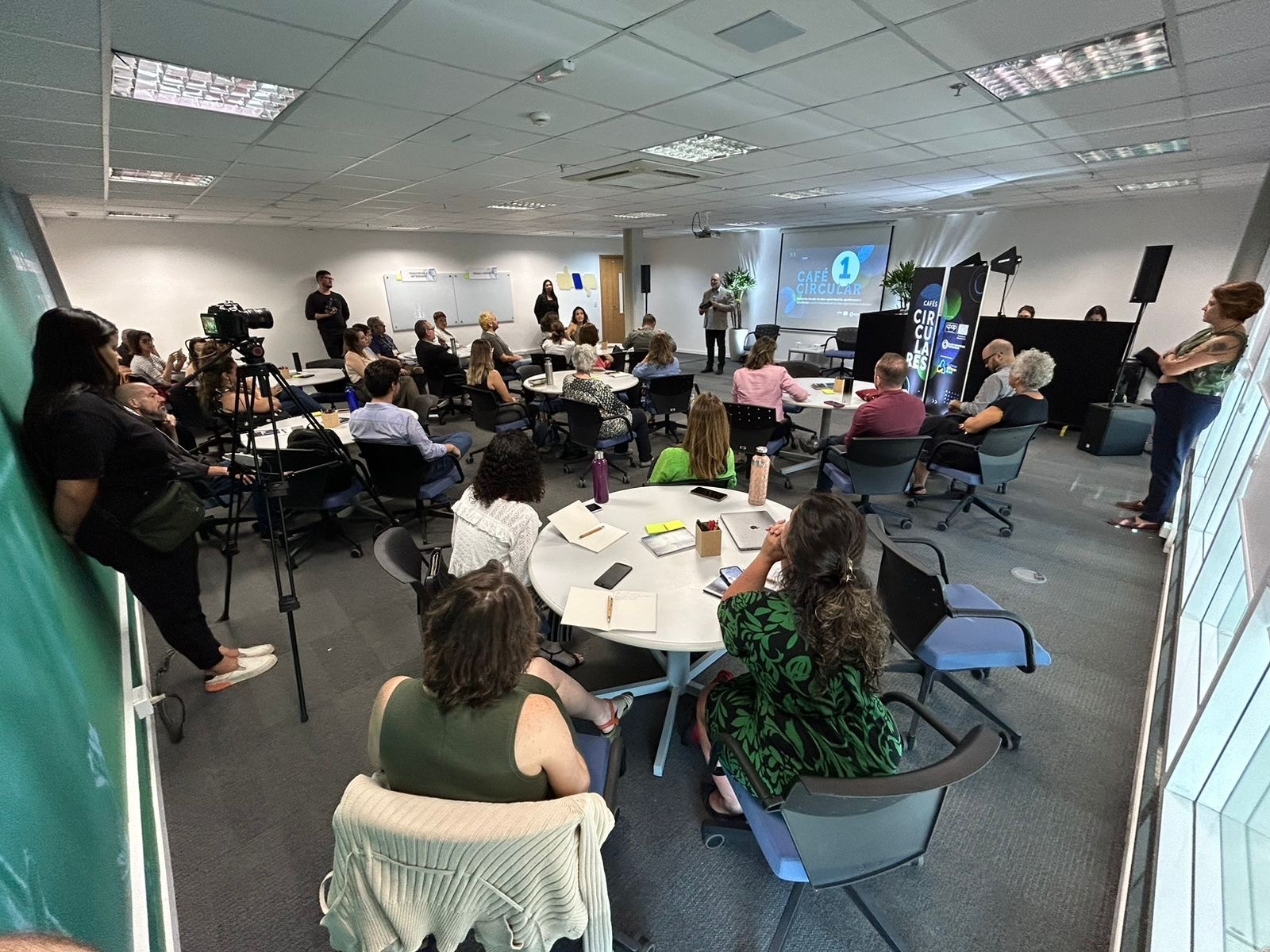Intending to deepen knowledge about circular economycircular economyA systems solution framework that tackles global challenges like climate change, biodiversity loss, waste, and pollution. It is based on three principles, driven by design: eliminate waste and pollution, circulate products and materials (at their highest value), and regenerate nature. public policies in Brazil, the European Union, through the Circular Plastics in the Americas Program (CPAP), joined the Ellen MacArthur Foundation, with the support of Exchange 4 Change Brazil, for an unprecedented circular economy training initiative for government managers and public leaders. Called Cafés Circulares, the training program aimed to qualify the debate and assist the process of implementing new government actions, especially those that enable low carbon development and promote the creation of green jobs and income.
The initiative was inaugurated with a Circular Economy Seminar on October 3, followed by four training sessions in October, November and December 2023. Its agenda included aligning knowledge and understanding on circular economy principles, mechanisms and strategies of transition from linear to circular economy, and sharing experiences from other countries. Each session focused on a specific area of the Brazilian economy, such as agriculture, industry, trade, services, and finance.
Luísa Santiago, Latin America Lead at the Ellen MacArthur Foundation, emphasized the importance for Brazilian leaders to have a deeper understanding of the circular economy.
“The circular economy is increasingly central to public policies. We wanted to take advantage of this moment to deepen knowledge on the subject and show how the circular economy is systemic, generates income and employment and reduces our carbon emissions”.
She also highlighted that, according to a report published in 2022, adopting the circular economy framework in Latin America and the Caribbean can significantly reduce GHG emissions. Also data from the Internation Labour Organisation points to the opportunity of creating around 4.8 million new jobs in specific areas such as waste management, recycling and the service sector in the region by 2030.
“The EU Programme – Circular Plastics in the Americas (CPAP) – promotes an intersectoral articulation to support the transition to a circular plastics economy through dialogue and international cooperation. The exchange of experiences, integrating all possible partners, is essential in identifying viable alternatives that benefit everyone. We believe that only in this way will we be able to move forward on this important agenda for Brazil and for the world”, reinforced Jean-Pierre Bou, Deputy Head of the European Union Delegation in Brazil.
More than 70 people from 10 ministries participated in the training. Certificates are now being made available to participants by the performing organisations, as well as a document with contents and learnings prepared during the initiative.

